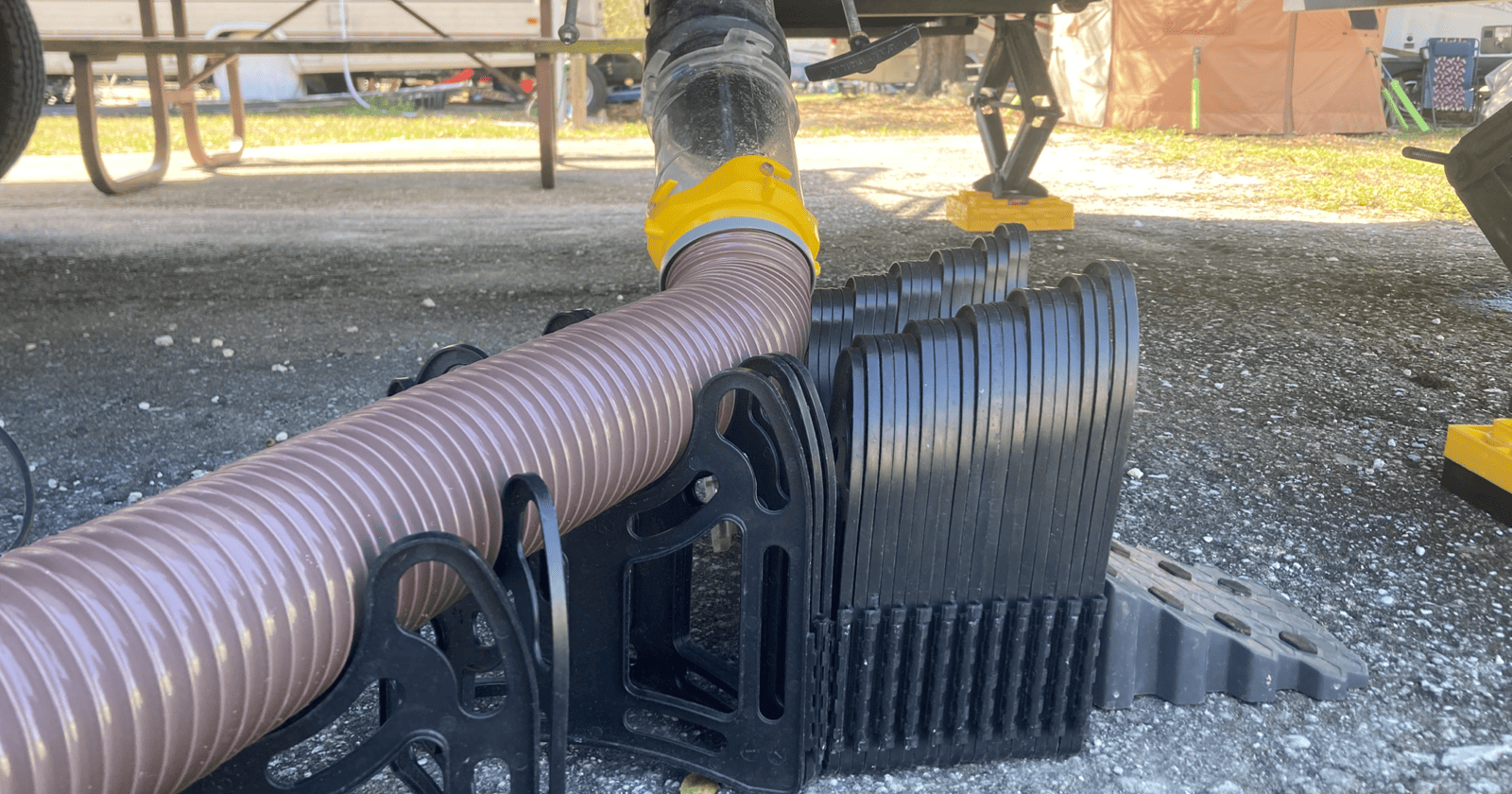Unveiling the Red Flags: Your Essential Guide to Avoiding Faulty Recreational Vehicles
Do you know what to look for to avoid getting stuck with a lemon RV? Buying an RV can be a big financial commitment as well as a time-consuming and stressful experience. Make sure you get the perfect RV by knowing the warning signs of a lemon RV.
It goes without saying that, at some point, you will have problems with any RV you own. It’s an accepted part of RV ownership that some time and money will be lost to repairs. Starting out with a solid RV that’s been well-maintained should be your goal when buying a used one.
Whether you are buying a $5000 RV or a $50,000 RV you want to make sure you aren’t getting someone else’s problems. Although there is no way to guarantee you won’t have any issues with a used RV you certainly can limit at least larger issues.
Exterior Signs of a Lemon RV
When you go to view potential RVs the exterior is the first thing you see and the first place to check for warning signs. Most RV owners take great pride in their rigs, and that should show by looking at the exterior.
A walkaround of the RV in the daylight is best to catch anything suspicious. Some obvious signs to look for are dents, cracks in the fiberglass, and rust or corrosion. Don’t forget to use a flashlight and check the underside of the RV for rust and corrosion as well as damage to the frame and underbelly.
Another important aspect to consider is the condition of the fiberglass, if applicable. When inspecting a fiberglass RV, be sure to closely examine the area surrounding seals and corners for any signs of delamination. The cost of repairing delamination can be quite steep.
During an exterior inspection, it is important not to overlook the roof despite its potential for easy dismissal. If access to the roof is unavailable, acquire a ladder. Neglecting to thoroughly examine the roof could indicate a defective RV, leading to costly repairs. Assess the condition of the roof covering, ensure all seals are intact, and evaluate the structural integrity of the roof.
Inspect the tires upon grounding and assess their overall condition and age. Although all RVs experience tire wear, it does not necessarily indicate a defective vehicle. Replacing multiple tires on a rig can accumulate significant costs. Additionally, inspect the suspension for any damages and ensure that any locations that require lubrication have been serviced.
Be prepared to get under RVs and get a little dirty while doing your inspection. Wear old clothes or bring a tarp so you don’t miss anything!
Interior Signs of a Lemon RV
When entering the RV, use your sense of smell to check for concerning odors. Investigate any moldy or musty smells, as they could indicate a serious problem. While smoke or pet smells may not be as worrisome, they can be challenging to eliminate.
Conduct a comprehensive inspection for indications of water damage, regardless of the presence of moldy or musty odors. Water damage is frequently observed in areas such as beneath counters, around doorways and windows, and on the ceiling. In a lemon RV, mold and water damage can be indicated by discoloration.
While walking, search for soft spots and listen for noises that suggest issues with the wood beneath the floor covering. Discoloration, warping, or loose flooring may indicate significant flooring problems that require extensive renovations.
Another potential issue to look out for is signs of pests. Pests may cause damage to an RV, such as nest-building, droppings, and wire chewing. A general guideline is that if you detect a sign of pests, it is likely that there are additional indications elsewhere.
With the not-so-obvious stuff out of the way, you can check out the furniture and appliances. Furniture and appliances get lots of use in many RVs, and this can show over time. Some wear from normal usage shouldn’t be of concern, but proud RV owners will have the inside of their rigs looking good with everything working.
Paperwork and Documentation
Viewing RVs can be exciting as you’re looking at what could be your next rig. There are also some not-so-exciting things to look into as well.
Confirming that the person selling the RV is the owner is priority number one. Before any money changes hands you need to be sure you are dealing with the owner and that they have proof of ownership to hand over to you.
Other things to confirm with the seller are if there is money owed on the RV and if there is a transferable warranty. In the case of a warranty, you may want to confirm with the company offering the warranty that it is indeed transferable.
Not all owners will have maintenance documents. However, many RV owners are meticulous about keeping maintenance documents. This is a great sign that the rig has been taken care of, and you aren’t getting a lemon RV. If there aren’t any maintenance records, you will want to be even more thorough with your inspection!
Red Flags to Watch Out For
As mentioned, there is no perfect RV, and some issues or required repairs aren’t necessarily red flags. There are some things that should make you think twice about closing a deal.
Good deals are out there, and if you can score one, good for you, but buyer beware! The RV market is still pretty hot, and so it is still a seller’s market. This means prices are going to be on the high side in most cases. With this in mind, if you see a hot deal you should approach it with some caution.
Sellers with guilt stories about why the price is so good or why the sale needs to happen today often aren’t telling the entire story. When questioning them about the RV, listen for inconsistency and information that seems questionable. Sellers should be completely transparent and willing to spend as much time with you as needed.
Meeting with the actual seller is important, and not being able to speak with or meet the registered owner may be a bad sign. Do not accept photos as a way to see the RV in place of physically inspecting the RV yourself. Anyone refusing to let you inspect the RV or only being able to meet quickly is a red flag!
Tips for Protecting Yourself When Buying an RV
Buying an RV can be overwhelming due to the inspection process, all the options, and the excitement you’ll be feeling buying. This is why it’s important to have a plan and be prepared for the buying process.
Before starting to look at RVs, you should know what you want in an RV. You can familiarize yourself with the make and model you are going to view so you have some knowledge of what you’re looking at. Owner’s forums can give some insight into issues with a particular model that you can then watch out for.
When you have your search narrowed down and are prepared to hand over your hard-earned money, having a professional inspection is a good idea. There is obviously a fee involved, but it is worth it not to end up with a lemon RV that costs far more in the long run.
Having a buying plan including what you’re willing to spend to buy and what you’re willing to spend on repairs or renos will keep you on track. Emotional purchases can be costly, which is why you need to be prepared to move on from an RV you may really like.
Consider Hiring a Professional RV Inspector
If you’re feeling uncertain or overwhelmed by the inspection process, it might be worth considering hiring a professional RV inspector. This can be particularly helpful if you’re a first-time buyer or not mechanically inclined. A professional inspector has the expertise to spot potential issues that you might miss.
Professional RV inspectors will conduct a thorough examination of both the interior and exterior of the RV, including the mechanical, electrical, and plumbing systems. They’ll be able to identify signs of wear and tear, damage, or potential problems that could become major issues down the line.
While there is a cost associated with hiring a professional inspector, it could save you money in the long run. If they spot issues, you could use this information to negotiate a lower price, or decide to avoid a potential lemon RV altogether. Plus, the peace of mind knowing that your RV has been thoroughly inspected is often worth the cost.
To find a reputable RV inspector, consider asking for recommendations at local RV dealerships or repair shops, or doing an online search for inspectors in your area. Make sure to check reviews and credentials to ensure you’re hiring a qualified professional. For more information on the benefits of an RV inspection service, check out this helpful article.
Conclusion
Purchasing an RV should be an exciting time that you walk away from, confident that you made a smart buy. There are some things that you may miss or had no way to know were wrong. While you shouldn’t be stressed about missing something you should be prepared to do a thorough inspection.
The inspection process can seem time-consuming, especially if you look at multiple RVs. While this can be true, it’s a small price to pay for avoiding a lemon RV. If you are considering multiple RVs, take notes on each one. This can make the decision easier when it comes time to choose one.
Avoiding a lemon RV could be the difference between you beginning a lifelong journey of RVing and just becoming discouraged and missing out on this great pastime.





Thanks for the great summary! Not hiring an inspector is foolish. We found it well worth the cost & gained much more rig knowledge than if we tried to muddle through the whole process ourselves. Going on 4 years of (mostly) happy camping!